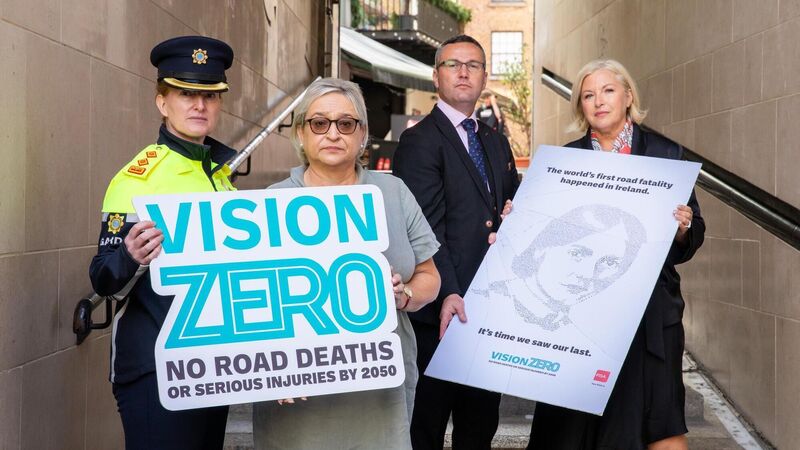RSA's Vision Zero campaign aims to cut road deaths to zero by 2050

(Left to right): Jane Humphries, Chief Superintendent of Garda National Roads Policing Bureau; Donna Price, Founder Irish Road Victims Association and RSA Board member; Sam Waide, CEO, RSA; and Liz O’Donnell, Chairperson of the RSA at the launch of the “Who was Mary Ward? Vision Zero” campaign Picture: Keith Arkins
The mother of a teenager killed while driving his car to college has said the call from gardaí about his death was “earth-shattering” and one that no parent ever wants to receive.
Darren Price, 18, died after his car collided with an HGV on March 30, 2006, while he was travelling from his home in Mullingar to Athlone where he was studying engineering at the time. The teenager, who was an inter-county footballer, was pronounced dead at the scene.










